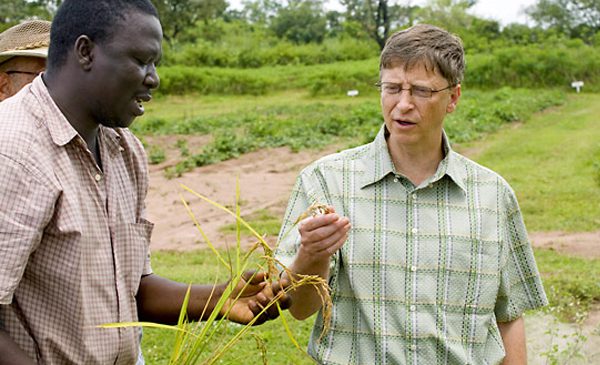
Take a look at the leaked report by Bill Gates to the G20, which got a good deal of media coverage because of its positive noises about the Financial Transactions Tax. Actually, the rest of the report is at least as interesting.
Firstly, it’s not actually the final report, but a 7 page ‘technical note’ on the key financing proposals. The report itself is going to talk much more about innovation systems. But the financial content in the technical note is fascinating. Some highlights:
A big focus on ‘domestic resource mobilization’ – poor countries raising their own revenues by improving their tax systems and getting more from extractive industries (oil, gas, mining). Gates argues for an extension of the Extractive Industries Transparency Initiative both to include more developing countries, and to introduce disclosure requirements in extractive companies’ home countries (along the lines of the US Dodd-Frank legislation).
As you’d expect, Gates argues that rich countries have to stick to their aid promises and that their ‘fiscal books cannot be balanced off the backs of the poor’.
On new sources of revenue, he puts potential cash from an FTT at $48bn a year (if introduced across the G20) or $9bn (major European economies only) and argues for ‘a substantial allocation for development’, presumably in response to the European Commission’s desire to grab all the income to fund its own operations.
But he also advocates two other cash cows: expanding the tax on tobacco to the WHO target of 70% of the pack price, which he reckons would raise a colossal $170bn a year (not clear from the text if this is the additional revenue, or includes the tax already being raised on tobacco). A ‘Solidarity Tobacco Contribution’, which he puts at $9bn a year, would then be allocated to global health initiatives.
His third revenue proposal is on climate change, where he supports World Bank and IMF (and Oxfam) proposals to fund adaptation costs with new taxes on shipping and aviation fuels , which he says could raise $30bn a year from shipping and a bit less from aviation.
Another sensible suggestion is tapping into the estimated $350bn a year in remittances from migrant workers, by driving down transaction costs and encouraging pro-poor investments through things like ‘diaspora bonds’ aimed at overseas workers and entrepreneurs.
Finally, he puts the amount of money now held by ‘Sovereign Wealth Funds’ built up by China, Abu Dhabi and others at an eye-popping $4 trillion and rising, and wonders how that could be harnessed for infrastructure or other essential investments (perhaps using conventional aid to make such investments more attractive to the SWFs).
Comprehensive, and very interesting, not least because of the identity of the author. Does Bill Gates’ protagonism mark a further shift of the big philanthropreneurs (and their foundations) from an insistence on sticking to the relatively straightforward world of ‘stuff’ (vaccines, infrastructure, seeds, microfinance) to the more complex business of influencing systems and policies, which are every bit as crucial to development? Hope so.
Duncan Green is Head of Research for Oxfam GB